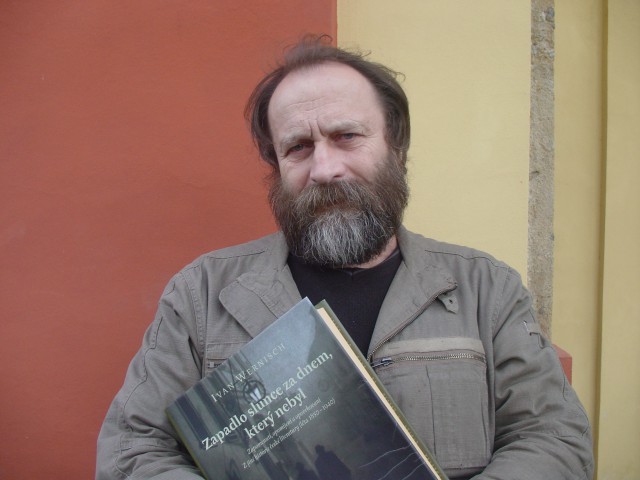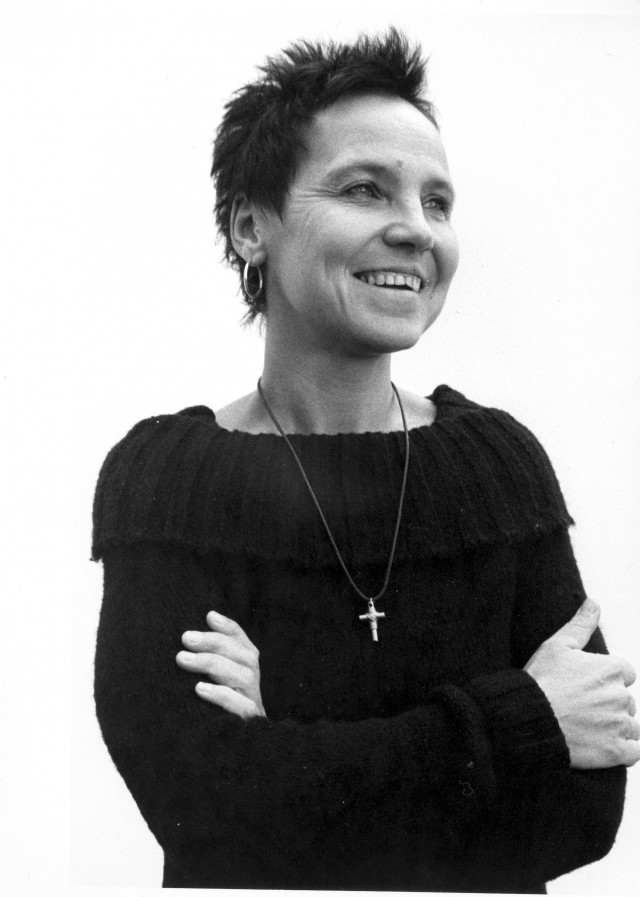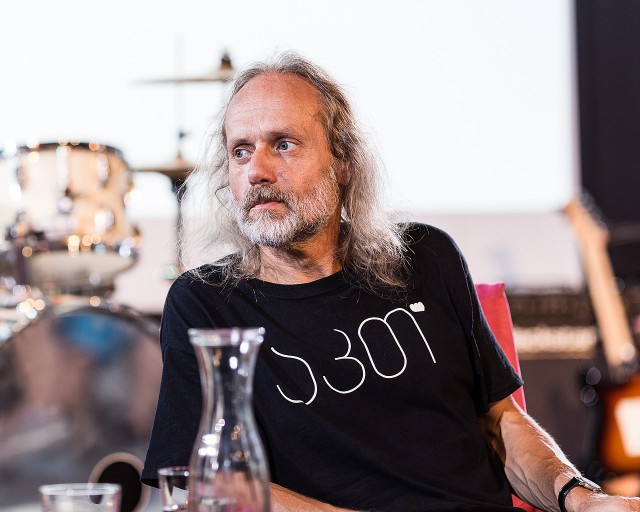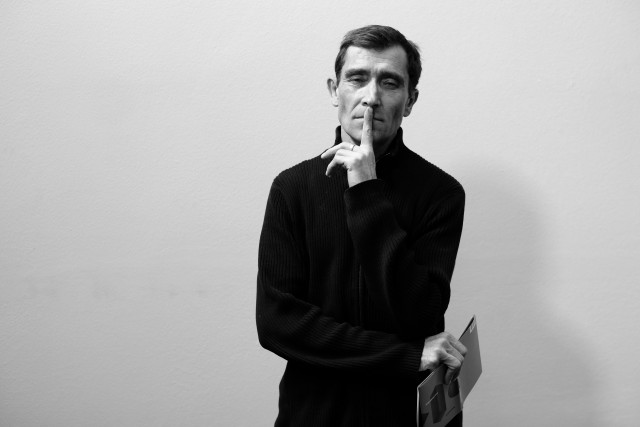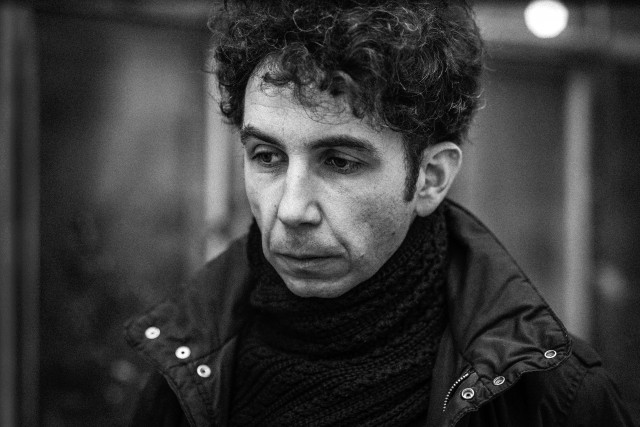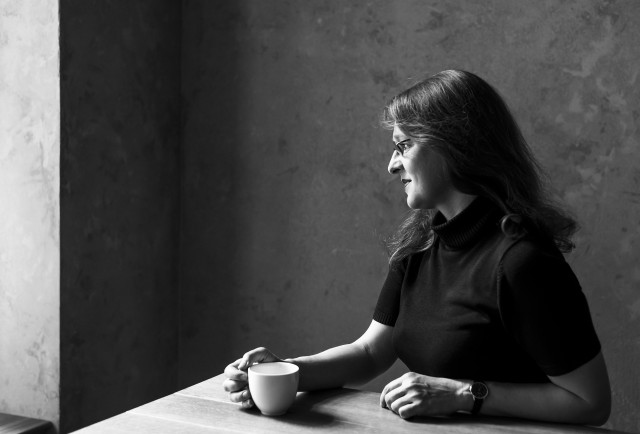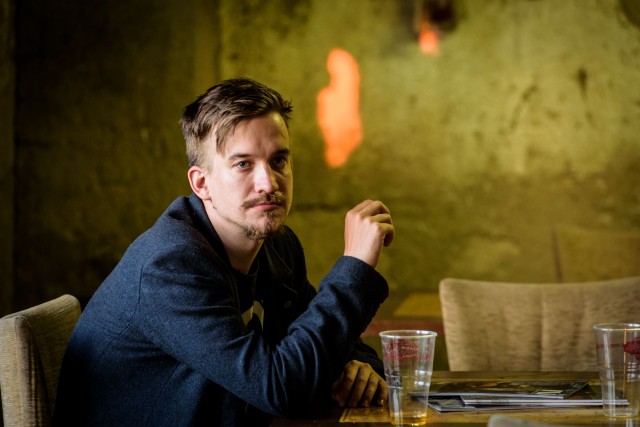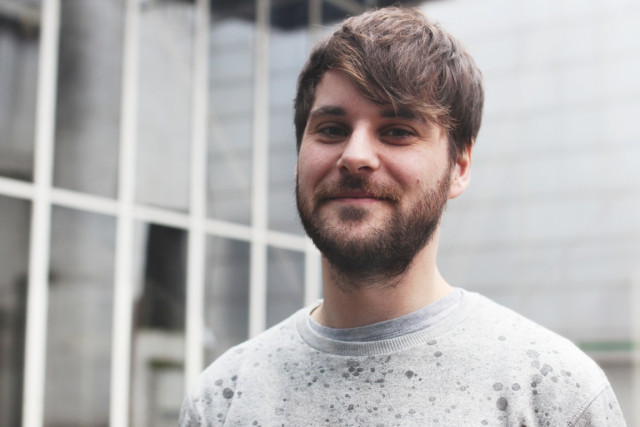To provide an overview of Czech poetry from 2010 to 2020 in the usual way – i.e. by searching for key events, trends, currents, and styles – is by no means a straightforward task. Not that these events and trends were not already discernible at the end of 2020; they were, but the problem lies in the fact that they are not sufficient. It is difficult to define Czech poetry from recent years based on similar poetics or shared ideas. So rather than a detailed map, this text will be more of an aerial image capturing the general drift of individual features and passing over a number of details and differences.
The start of the first decade of the new millennium marked the tail end of discussions within the contemporary Czech poetry scene about socially engaged poetry, with attitudes finally being openly refined regarding its social role. What sparked interest were new trends (conceptual poetry, environmental poetry) which were starting to attract increased attention in the somewhat conservative Czech literary environment. But the most significant change to occur on the Czech literary scene within this decade was due to something beyond its control – the relentless totality of time. Within a relatively short period of time, several notable poets exited the scene forever; figures who had helped shape it over the decades, who were looked up to as great authorities, and who, in some cases, had still been actively contributing towards it till their last days (which is why this article will be structured according to generational lines, or even age/sociological generations, rather than purely literary generations).
The Greats Bow Out
A significant number of poets born back in the 1920s and 1930s left us: Zdeněk Rotrekl, Ludvík Kundera, Bohumila Grögerová, and Zbyněk Hejda. Practically the entire ‘Thirty-Six’ group disappeared, including its most famous member, Václav Havel (along with Jiří Kuběna, Viola Fischerová, and Josef Topol). Nearly all of the ‘1960s generation’ also departed – poets who had come to prominence during the ‘thaw’ of the Communist regime between 1960 and 1968: Jiří Gruša, Antonín Brousek, Pavel Šrut, Stanislav Dvorský, Zeno Kaprál, and Petr Král. Throughout the 2010s, Král had been one of the most artistically active members of this generation, an important voice in contemporary discussions (his essays and critiques are contained in the extensive volume Vlastizrady (Treasons, 2015), and also a great influence on a number of poets from the younger generation (Jakub Řehák in particular) with his post-surrealist poetics.
We also lost some prominent figures from the underground movement of the 1970s and 1980s, and with them their characteristic vigour and provocative expression straddling intimacy, the grotesque, politics, and spirituality. With his collections Semeniště zmrdů (A Breeding Ground of Fuckers, 2012) and Teteliště zmrdů (A Den of Fuckers, 2012), Milan Kozelka (1948–2014) managed to influence several poets from the youngest generation (especially Jan Těsnohlídek), who, among other things, took on board the idea of poetry having a socio-critical function. In Ivan M. Jirous (1944–2011) we lost an incredibly complex as well as influential character who served as a role model of authenticity with his uncompromising attitudes. Jirous even influenced poetry after 2010 with his posthumously published collections – Úloža, 2013; Magorův noční zpěv (Magor’s Night Singing), 2013; and Akrostichy (Acrostics), 2015.
Living Memory
The distinction of the doyen of Czech poetry goes to the still-active and prolific Karel Šiktanc (b. 1928), whose poetry collections continue to cultivate the sophisticated lyricism of language which confidently develops the heritage of Modernist poetry and carefully examines perhaps all stylistic levels of the Czech language. In his collections Horniny (Minerals, 2016) and Ubírati se (To Proceed, 2018), the poet notices metropolitan (i.e. Prague) mundanity, into which he allowsboth a trace of metaphysics and the existential weight of human fate to penetrate through fissures of fragmentary compositions.
From the aforementioned 1960s’ generation, it is Ivan Wernisch (b. 1942) who has made the deepest impression on contemporary poetry and continues with his whimsical and dreamlike postmodern poetics filled with allusions and mystification. With the collections S brokovnicí pod kabátem (With a Shotgun Under His Coat, 2014), Tiché město (The Silent City, 2016), and Pernambuco (2018), the poet has only intensified the characteristic metaliterary distancing of his poetic statement and ironic sneer at poetry as an area of a priori values and grandeur. Not least, for Wernisch the 2010s were a period of reminiscence and a return to his earliest years as a poet with an enthusiasm for the exoticism, absurdity, and playfulness of poetry. Miloslav Topinka (b. 1945) reminded us of his presence on the literary scene with a selection from his modest number of poetry collections, published under the title Probouzení (Awakening, 2015), to which he added the new cycle “Prosvítání” (Enlightenment), in which he continues his lyrical examination of the ties between human existence, nature, and the universe as well as in dialogue with literary traditions and modern science.
During a decade when the presidential office was occupied by Miloš Zeman, external political circumstances briefly highlighted those writers who had lost a great deal of credit in terms of poetry and morality during the Communist regime. The conferral of a state medal of merit on Karel Sýs (b. 1946) provoked a debate regarding his work (and the work of similar poets), which since 1989 has been dominated by verbal aggression, vulgarity, and a consistent negation of post-1989 developments in Czech culture and society (e.g. Apokalypsa podle Joba [The Apocalypse According to Job], 2013). Jiří Žáček (b. 1945) found himself at the centre of attention in 2017 for his gender-insensitive poetry for children “What are girls in the world for? / For making babies”. In addition to the reaction of the press, a response in poetry form also very quickly followed, the collection K čemu jste na světě (What Are You in the World For?, 2018) by Ondřej Macl (b. 1989), in which the young poet offers dozens of parodies of Žáček’s aforementioned motif.
Baby Boomers
From the generation of baby boomers (born 1946–1963) during this past decade, the work of Svatava Antošová (b. 1957) stands out in her collection Dvojakost (Duality, 2014) due to the openness, urgency, and expressiveness with which the poet portrayed homoerotic intimacy as well as the fundamental division of a person thrown into the vicissitudes of personal emotional dramas while struggling to form a distinct identity of their own. The collection Dvojakost is also an inter-media dialogue between verse and the photographs of Petr Kuranda, portraying female genitals carved into the bark of trees or depicted in different ways in public spaces.
The other poets of this generation have tended to build upon their already established poetics: Miroslav Huptych (b. 1952) enhanced his imaginative, playful, and dreamlike poetics with harrowing experiences gained from working at a crisis centre (Noční linka důvěry [Confidential Night Line], 2012); Vít Slíva (b. 1951) developed his contemplative lyricism focusing on the passing of time (this time with greater emphasis on the brevity of miniature texts, e.g. Návrší [Hillock], 2014); Lubor Kasal (b. 1958) added to his lyrical-epic compositions with the poem Dvanáct (Twelve, 2011), in which he paints another tragi-comic picture of contemporary civilisation – on this occasion on the intertextual basis of Alexandr Blok’s eponymous composition; Sylva Fischerová (b. 1963) also moved towards an epic style in her emotionally urgent yet philosophically and historically nuanced collections Mare (2013) and Sestra duše (Soul Sister, 2015); J. H. Krchovský (b. 1960) also remained true to his popular, stylistically virtuosic, neo-decadent poetics in his collection Já už chci domů (I Want to Go Home Now, 2015).
The poetry of Michal Maršálek (b. 1949) was a particularly unusual and unique phenomenon. Practically no one had heard of him before, but in the 2010s, this poet made a very bold entry onto the contemporary scene, quickly gaining the respect of younger generations and naturally becoming part of their debates on poetry as well as their social lives. Maršálek’s poetry collections Černá bere (Black Wins, 2014), Pootevřeno (Half-Open, 2015), and several others which were published in the 2010s, quickly came to prominence due to their expressive minimalism as well as their depth of ideas. Maršálek’s poems are tight-lipped and quiet, focusing on minor incidents of everyday life. Often all they need are a few austere verses with one single observation. The poet almost ascetically removes the majority of conceivable means of expression, but at the same time, we do not sense a lack in meaning when reading his texts. With Maršálek’s entrance into the world of Czech poetry, we once again had the distinctive figure of a poet reflecting on profound philosophical and existential matters.
This generation also contains a strong group of poets who made their debuts after 1989 (Petr Motýl, Petr Halmay, Roman Szpuk, Ewald Murrer, etc.). In the 2010s, the most prominent were Jiří Dynka (b. 1959) and Petr Hruška. Dynka continued in his stubborn search for a language capable of expressing the subtle values of intimacy and the strangeness of life in a postmodern setting. His collections are filled with a boldness of colour, the enchantment with nature, but also with the grim reality of the city as a heavily commercialised space. In his collection, Naučná stezka Olšanské hřbitovy (An Educational Guide to Olšany Cemetery, 2010), he also adds references to politics and history. The metaliterary reflections are also more pronounced, focusing not only on the process of writing, but also on the social life of literature, as in his collection Kavárny (Cafés, 2015) in which he thematises several Prague hotspots of the literary and café scene.
The collections of Petr Hruška (b. 1964) delved deeper into the mini-dramas of family relationships with precise observations of specific situations, though this time with a stronger link to the more general cycle of human existence and fate, torn between desires, intentions, rational reasoning, and how they crumble and disappear over time. In Darmata (2012), Hruška’s figures are more clearly situated within the social world; they avoid banks, they dread loans, they cannot stand politicians’ faces. A new element in the poetics of this influential author is also the occasional use of conceptual approaches (which are developed further in the collection Nikde není řečeno [Nowhere Is It Said] from 2019) – that is, when he appropriates texts from spam emails and reveals the poetic nature of their deformed language.
Generation X
Signs of a willingness to experiment also manifested in the poetics of the representatives of Generation X (authors born between 1965–1985), some of whom made their debuts shortly after 1989. In his somewhat misleadingly titled collection Milostné básně (Love Poems, 2012), Petr Borkovec (b. 1970) revived the genre of natural lyricism, at times using ironic language games and experiments with archaic language referring back to nineteenth-century poetry. Borkovec’s collections from the 2010s are constructed as distinctly heterogenous texts in terms of form, language, and theme. Their common denominator is an immersion in the roots of lyricism, song, sentiment, even at the cost of ironic detachment considered de rigueur in a genre that seems to have exhausted its expressive means. This ‘experimental’ nature of Borkovec’s new work is best summed up in the subtitle of his collection Herbář k čemusi horšímu (A Herbarium for Something Worse), 2018 – “Responses and Centos and Exercises”.
Since entering the literary scene in the 1990s, Martin Stöhr (b. 1970) has also significantly transformed his style. From his Bohuslav Reynek-styled miniatures and his spiritual, rurally situated lyricism, Stöhr moved towards factual yet dreamlike, melancholic images of the city, which merge the perspectives of documentary and memory and are populated by figures whose names are often to be found in contemporary literature. In addition to fleeting thoughts about the passing of time and living in the strange present day, some of Stöhr’s key themes include reflecting upon poetry (particularly in the collection Užitá lyrika [Applied Lyricism] from 2020, where his reflections are lightened by humour and self-irony), writing poetry, as well as meeting other poets.
Other figures from the ‘poetry of the 1990s’ changed less dramatically in their poetics, though they maintained the high standard of their established style: Radek Fridrich (b. 1968) developed his expressive poetry sensitive to the complex fate of North Bohemia and Czech-German relations in his collection Krooa krooa (2011). After a nine-year hiatus, Jaromír Typlt (b. 1973) returned to current Czech poetry with the collection Za dlouho (Not For a Long Time, 2016), in which he continues to be captivated by ambiguity in language, in particular by the sound of language. After an even longer pause, Pavel Kolmačka (b. 1962) returned to the Czech poetry scene in the 2010s with his collection Moře (The Sea, 2010), in which he seamlessly continued his sober, objective lyricism from the end of the 1990s. He observes, at an almost metaphysical level, the microworld closest to him, including his family and the apparent banality of everyday life. He manages to maintain this soothing and rurally unhurried level of perception in his subsequent collections Wittgenstein bije žáka (Wittgenstein is Beating a Pupil, 2014) and Život lidí, zvířat, rostlin, včel (The Life of People, Animals, Plants, and Bees, 2018), which he, however, complements, or rather interrupts, with cacophonous recordings of the hustle and bustle of the modern world. Following her previous attempt at epic poetry, Božena Správcová (b. 1969) returned to a more concise poetic form in the collection Strašnice (2013). However, she persisted in her efforts to create a modern or postmodern poetic mythology, the plots and stories of which are played out in contemporary Prague, transformed, though, into an original, dreamlike, and grotesque time-space. As in his other books from the 2010s, Milan Děžinský (b. 1974) toned down his, until then, characteristic expressiveness in Tajný život (A Secret Life, 2012), instead aiming for a lyricism based on objective description and intensive self-reflection, but also containing abstract philosophical reflections.
This group of contemporary Czech poets (labelled here Generation X – to borrow the sociological term) also features several important authors who were unable to publish their first books during the hectic 1990s and became part of the literary scene in the first years of the new millennium – often not coming to prominence until the 2010s. This was certainly the case for Daniel Hradecký (b. 1973), who made his debut in 2004, but who only gained more widespread attention with his collection 64 (2013), where, with an extreme economy in expression and cold analytical precision, Hradecký examines the fundamental elements of human existence or, more precisely, his own poetic existence: time, carnality, love, the desire to outdo oneself, the network of interpersonal relationships, and, not least, the network of relations between literary texts. In his subsequent collections, Přibližování dřeva (Yarding Wood, 2019) and Jezero (The Lake, 2020) in particular, the poet delves to the core of these themes using the slightly rougher route of the epic-forming and expressive diction of an angry outsider.
The poetry of the 2010s also featured distinctive poets who, until then, had presented themselves collectively as the group Fantasía (their first eponymous collection came out in 2008) and who began to gradually appear individually after 2010. In his debut work, Rozevírání (Unfolding, 2011), Adam Borzič (b. 1978) attempted to reinvent a traditional style of spiritual lyricism, but it was with his next collection Počasí v Evropě (The Weather in Europe, 2013) that he came to the attention of the literary public. Here he managed to combine subjective lyrical reflection and self-reflection with an almost documentary look at contemporary Europe and its economic and spiritual crisis in particular. What proved to be quite unique was the concept for the collection Západo-východní zrcadla (East-West Mirrors, 2018). Here Borzič leads a multicultural dialogue between figures of the European Renaissance and medieval Islamic mystics. In his first work, Oheň po slavnosti (A Fire After the Celebrations, 2011), Kamil Bouška (b. 1979) was still following the dominant descriptive trend in contemporary lyricism, but subsequently in Hemisféry (Hemispheres, 2015), he discovered his own darkly expressive voice. If the lyrical confessional ‘I’ is still here at the foundations of the poems, Bouška’s next collection of poetry in prose, Inventura (Inventory, 2018), has a much more complicated communicative basis: its intention is to be nothing less than an inventory of humankind, questioning how much of humanity remains in the contemporary individual – and this by way of an often very cruel negation, beyond which, however, the space for the growth of humanist values seems to open up anew. The third member of the group, Petr Řehák (b. 1978), also developed a very distinctive voice in his first collection Násobit ruce (To Multiply Hands, 2014). A free-spirited, fertile imagination dominates Petr Řehák’s distinctive style, which for this poet leads de facto to a way of thinking that allows him to avoid stereotypes and preconceptions. Here Řehák understands the poem not as an opportunity for confession, but more as a textual object, something irritating, which functions in an obscure manner. Something, however, which convinces us that it is working properly, according to a plan, and is directed towards its goal.
Jonáš Hájek (b. 1984), in terms of his age and first publications (he first published on amateur literature websites), could almost be considered part of Generation Y. His collection Básně 3 (Poems 3, 2013) loosely places him alongside the poets from Fantasía with their partial objectification of lyricism and attempt to shift the focus away from the interior to what surrounds the speaker. Básně 3 is also connected to the work of the Fantasía poets mainly by striving for semantic complexity: the collection contains both personal and private confessions, as well as references to the poet’s life in the community; alongside contemporary verse we find poems with historical subjects, and alongside lyrical monologues are texts which veer towards dialogue and pointing to an untold story.
Not least, the 2010s was a period which saw the arrival of a number of distinctive creative voices on the literary scene. But before we turn to the millennial Generation Y, it is necessary to mention a few very distinctive (and relatively late-arriving) debutants from the previous generation. Ondřej Buddeus (b. 1984) left an unmistakable mark on contemporary poetry with verse which stood out from the contemporary generation (and beyond) thanks to a willingness to experiment and an inclination towards a conceptual approach in the creation of his texts. His collection 55 007 znaků včetně mezer (55,007 Characters Including Spaces, 2011) is a conceptual work of text/art which, already from the most basic material level, strives to do one thing – get the reader involved. For example, the reader is presented with the task of deciphering the unusual method of page numbering, or even prior to that with the task of choosing a specific copy of the book from a series of different colours which it was produced in. As has been mentioned, the text is a concept which attempts to communicate its basic features through its materiality – which undoubtedly includes rationality and an intellectual approach towards reality and texts. Buddeus’s next collection, Zóna (Zone, 2016), is almost the polar opposite of the previous collection: in place of a precisely functioning rational concept, the maximum space possible is given to randomness, deliberate miscommunication, and linguistic deformation. Here Buddeus understands the poem as a space where language can reveal its hidden strengths and by doing so, point out the blurred borders between rationality and randomness, between originality and copying, and between accuracy and error.
Although not directly conceptual in nature, Olga Stehlíková’s (b. 1977) first work, Týdny (Weeks, 2014), is undoubtedly based on a very carefully conceived composition. In her collection structured into sections named after the days of the week, Stehlíková innovatively grasped the mainstream genre of factual descriptive lyricism, but instead of the usual mere documentation of mundanity, she focuses on deconstructing the speech we use to conceptualise and label this everyday experience. The ironic distancing from the poetic statement, which already played an important role in Týdny, was intensified by the poet in her collection of metaliterary puns, Za lyrický subjekt (For a Lyrical Subject, 2018), which was presented as a mystification project under the pseudonym of Jaroslava Oválská, behind which was the poetic duo Olga Stehlíková and Milan Ohnisko.
With their exceptional first books, and especially their subsequent collections, two somewhat later debutants from the 2010s were also Jitka N. Srbová (b. 1976) and Wanda Heinrichová. From the fragile, stylistically pared-down intimate poems of her first two collections – Někdo se loudá po psím (Someone is Hanging Around like a Dog) 2011, and Světlo vprostřed těla (The Light in the Centre of the Body, 2013) – Srbová developed a distinctive poetic concept in Les (Forest, 2016), where the ‘forest’ also comes to embody, de facto, a character, a dynamic actor in the short poetic stories and lyrical situations, and thus prefigured the growing interest in environmental themes in poetry. A similar process of ‘depersonalisation’ and a focus on the objective reality of language can be found in the poetry of Wanda Heinrichová (b. 1968), who in her first collection Nalomenou (2011) still worked her way through a web of cultural references before finally returning to herself embodied in the lyrical ‘I’. In the collection Jehla sestupuje (The Needle Descends, 2018), there is mostly no such return; the subjectivity of the commentary dissolves in the incredibly colourful and disparate linguistic reality of the collection, where genres, styles, and even languages alternate – and everything is only gently held together by a delicate, yet also grotesque atmosphere, and finally only by a network of relationships which move out of the book into the world of literature and its creators.
Generation Y
As has been mentioned, a generation appeared on the literary scene in the 2010s which is sometimes described as the ‘internet generation’ (because these young men and women grew up in a world already linked by this global network), though more often it is referred to as the millennial generation or Generation Y. In what way is this group of poets who were born between the mid-1980s and the mid-1990s different from other generations? The qualities attributed to them by sociologists include a heightened sensitivity towards political matters as well as an inclination towards digital technology, liberalism, and tolerance, but also narcissism. It must be said that this characterisation of Generation Y is fairly accurate even when looking at the literary generation. In terms of the relationship between poetry and politics, it could not be more fitting. Millennials are no longer warriors who want to revive socially engaged poetry (as was the case with the previous generation, which made clear the political dimension of their poetry in heated debates at the end of the previous decade). Poets of this generation are not concerned about political themes in poetry – they are concerned about their own life as a whole, part of which also understandably includes politics.
The first poet to challenge the aesthetic and intellectual stereotypes of poetry from the 1990s (which were to determine the poetry discourse well after 2000) was Jan Těsnohlídek Jr. (b. 1987). His first work, Násilí bez předsudků (Violence without Prejudice, 2009), published at the end of the previous decade, was a small revelation, because Těsnohlídek did not hide his ambition to be a generational spokesperson. Indeed the opposite was true, as the poet went on to effectively work with this in both literary and marketing terms. In the first person plural he attempted to express the feelings and frustrations of those who, like him, had grown up in the stormy atmosphere of the 1990s, and for whom the rhetorical background of those childhood years was constituted by the optimistic rhetoric of freedom and prosperity, which, however, reality completely failed to resemble. One emblematic figure which appears in the first books by these young poets is that of the homeless person. The shock from the deprivation and humiliation which someone can fall into without unduly upsetting passers-by is something which has helped shape this generation. This experience of a generation frustrated and disgusted by what was supposed to edify them is also articulated by Roman Rops (b. 1985) in the collections A la thèse (2012) and Maskirovka (2018), though with considerably more exaggeration and irony than Těsnohlídek (indeed, Rops deliberately caricatures Těsnohlídek’s rhetorical and somewhat naïve style). In the collection Pod dlažbou (Beneath the Cobblestones, 2016) by Jan Škrob (b. 1988), this frustration takes on a dystopian dimension in images of a new totalitarianism, where the life of the individual is subjected to constant surveillance and the permanent threat of persecution. However, beneath the layer of absurdity and dystopia lies an obviously profound authentic experience and emotional shock from the encounter with destitution which strips away human dignity.
For these poets, it is not only about the accumulation of negative images, documenting the inhumanity of a society operating on the principles of a neoliberal ideology. The poems all comprise extremely personal commentaries highlighting the fact that the subjectivity in the poetry of this generation is shaped to a considerable degree by the juxtaposition of personal sensitivity and social cynicism. As a result, there is pronounced defeatism, fatigue, and resignation to be found in the debut works by these millennial poets who refuse to be part of a system whose falseness and cruelty were apparent to them as early as childhood.
Generation Y is also labelled the internet generation as these millennials have been surrounded by digital media and its networks since childhood. However, the virtues of this interconnected world – at least according to these poets – cannot and will not be appreciated. The ethos of cooperation and communication connected with the internet and digital culture appears here as another lost cause. Although the digital revolution ushered in an unprecedented level of interaction, it did not provide a way to change the system. This tension between the seeming democratisation of social discourse, which is seductively offered by interactive media, and the power of capital, which is determined not to budge an inch from its fixed position (in fact the opposite), is presented in the collection Proluka (Vacant Space, 2016) by Jan Nemček (b. 1986).
The poets of the internet generation have also spread their criticism of the media to areas outside of digital culture. A regular target of their disapproval and ridicule is the old medium of television. It does not take much to ironically represent bombastic television competition shows – it being enough to move a description of them onto a page in a poetry collection, as Klement Václav Lakatoš (b. 1986) did in his book Kapitalistické básně (Capitalist Poems, 2012). The aim of his verse is not to criticise media culture; instead, it has much more widespread implications – an appeal for authenticity. A desire to tear down the false trappings and distorting filters through which we normally and unreflectively perceive reality and which distance us from it. At the same time, Lakatoš’s collection is the most concentrated, while in terms of language and composition it is the most conspicuous and perhaps even most imaginative example of a poet’s criticism of capitalism to emerge from the work of Generation Y. It is impossible to overlook here the inspiration taken from the playful and imaginative poetics of the historical avant-garde and the neo-avant-garde: readers of Kapitalistické básně become involved through a poem in the form of quiz questions, elsewhere through the challenge to find permutations to Václav Havel’s statement, “Truth and love will triumph over lies and hatred.”
The millennial poets are disturbed not only by the scenes of human deprivation they encounter on the streets, but by the global character of contemporary capitalism in general. They try to come to terms with the tension between a desire to escape, to go somewhere else, and the knowledge that it is impossible to run away, because the world has become a unified global village and there is nowhere to hide from the principles of the system. They look at the impact of global capitalism when they contrast images of attractive consumer goods with badly paid jobs and dreadful working conditions on the other side of the world. This form of ‘global consciousness’ is apparent in the collection Vše o lásce (All About Love, 2019) by Tomáš Čada (b. 1985), where, employing emotional urgency, the banal situations from the life of a young family are juxtaposed with violent scenes from distant military conflicts.
Towards the end of the decade, questions and issues relating to the approaching environmental and climate crisis began to be brought up as part of poetry’s global consciousness. This partially reinflamed old passions; for a time, it was not politically engaged but environmental poetry which became a subject of discussion and debate. Ecopoetry started to appear on the pages of journals and literary websites, and for a while the atmosphere crackled with manifestos and counter-manifestos. The stand-out figure in this context (though also for his purely literary talents) was Jonáš Zbořil (b. 1988) with his collection Nová divočina (The New Wilderness, 2020), the subtext of which embodies an anxiety regarding the imminent environmental crisis, while in the actual text this environmental appeal appears very subliminally in the form of whimsical, imaginative situations, where nature regains the areas which had been taken from it and abused by humankind.
However, it would be quite misleading to reduce the poetry of millennials to its political aspect. As I have already indicated, its specific character lies in the rediscovered complexity of expressing in poetry form the world and people’s destinies. An advantage for this generation is their distance from major historical events, which thus allows them to combine the personal and the social, the temporal and the eternal, the erotic and the political, and a number of other seemingly incompatible dualities. Meanwhile, for many poets it is clear that the social element does not dominate at the expense of subjective, intimate elements. This applies, for example, to Marie Feryna (b. 1993), who first wrote under a male name with a male identity (Před setřením [Before Wiping], 2016). She marginally (not activistically) addresses the issue of transition in the collections Osa (Axis, 2018) and Black Screen (2020), though the main theme of her collections forms a reflexive and, in terms of imagery, darkly expressive, almost blasphemous lyricism embedded in the language of poetry and a sensitivity towards metaliterary issues. The proportion of English passages in her poems gradually increases, not only due to intertextuality, but more as a generational gesture towards her peers for whom the macaronic form of Czech-English communication is found in everyday speech. A similar style of lyrical spokesperson is found in the figure of Marek Torčík (b. 1993) and his collection Rhizomy (Rhizomes, 2016), where we also find the distinctive use of Czech-English multilingualism: a young intellectual speaks to us from the collection, switching between languages with ease (even within one sentence) and proudly announcing his cosmopolitan or post-nationalist view of the world. And I will conclude this incomplete overview of the Generation Y poets with a collection where multilingualism also plays an important role, the author of which is also of an intellectual bent, albeit in a completely different context. The poetry collection Miluji svou babičku víc než mladé dívky (I Love My Gran More than Girls, 2017) by Ondřej Macl (b. 1989) describes the poet’s relationship with his Slovak grandmother and thoroughly examines the archetype of this figure throughout the history of literature as well as in each person’s life. In terms of genre, it is an unusual mixture of intimate lyricism, memoir, essay, and intertextual literary game.
This article, in which I attempted to provide a rough outline of the characteristics of Czech poetry which appeared over the past decade, is also incomplete. For a more exhaustive overview of Czech poetry in the 2010s, I would recommend the series Nejlepší české básně (The Best Czech Poetry), which was brought out annually by the publishing house Host until 2019. There is still too little time that has passed since the period I have described to be talking about trends, currents, and directions. One thing, however, is certain – between 2010 and 2020, a substantial amount of good poetry was created in the Czech Republic which is well worth tracking down.
Completed in Žižkov in December 2020 with support from Pavel Janoušek’s Praemium Academiae.
Translated from the Czech by Graeme Dibble.
[ ]
Karel Piorecký (1978) graduated from the Faculty of Education, Charles University in Prague, with a degree in Czech and German Studies and completed his postgraduate studies in the field of the history of contemporary Czech literature at the Faculty of Arts, University of South Bohemia in České Budějovice. He is currently working at the Department for the Research of Contemporary and Twentieth-Century Literature at the Institute of Czech Literature of the Czech Academy of Sciences, where he focuses primarily on the history of modern Czech poetry and the relationship between literature and new media. His publications include the monographs Česká poezie v postmoderní situaci (Czech Poetry in the Postmodern Situation, 2011) and Česká literatura a nová média (Czech Literature and New Media, 2016).
Photo of Karel Piorecký by Soňa Pokorná

